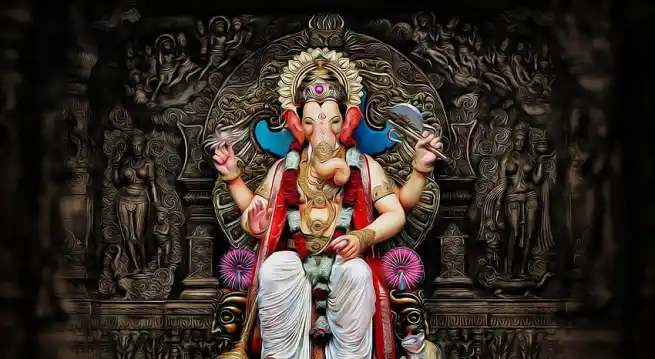Maha Aungmye Bonzan Temple, Myanmar

Address
Maha Aungmye Bonzan Temple, Myanmar
Inn Wa, Mandalay Region
Myanmar (Burma)
Moolavar
Buddha
Introduction
Maha Aungmye Bonzan Monastery, commonly known as the Me Nu Brick Monastery, is a historic Buddhist monastery in Inwa, Mandalay Region, Myanmar (formerly Burma).
The monastery was built by Queen Nanmadaw Me Nu in 1818 to serve as the residence of her religious preceptor, the Nyaunggan Sayadaw U Po. Then offered to the 2nd Nyaunggan Sayardaw U Bok. The monastery was damaged by the earthquake of 1839 but was repaired in 1873 by his daughter Hsinbyumashin. This monastery is one of the finest specimens of Myanmar architecture during the Konbaung Period (19th century). Its architecture is in simulation of wooden monasteries with multiple roofs and a prayer hall of seven-tiered superstructure.
Puranic Significance
The Maha Aung Mye Bonzan Monastery is one of the finest surviving examples of 19th century Konbaung-era architecture in Myanmar. It was In was extensively damaged in March 1839 by the series of earthquakes that struck Inwa and surrounding regions, likely resulting in its abandonment. Although earthquake damage in Inwa was so extensive that King Bagyidaw moved the capital north to nearby Amarapura, the monastery wasn’t completely forgotten. In 1873 it was restored by Me Nu’s daughter, Hsin-hpyu-ma-shin, assuming essentially the form that it retains today.
The monastery was designed as a brick replica of typical wooden monasteries of the age. Constructed on a large plinth with masonry stairs, the monastery comprises two main edifices: a tall pyathat-crowned shrine on the east and a large rectangular structure with two inner rooms, two sets of perimeter corridors, and an imposing series of facades capped by a triple-tiered roof. The two internal rooms in the larger chamber had specific functions—the east room (which includes the primary Buddha image) was used by the chief abbot as his residence. The room to the west (which is now bare) was used by other monks as a dormitory and schoolroom. Today the monastery is no longer inhabited but is maintained in good condition.





Century/Period
19th century
Managed By
UNESCO World Heritage Site
Nearest Bus Station
Bagan
Nearest Railway Station
Bagan
Nearest Airport
Nyuang U









